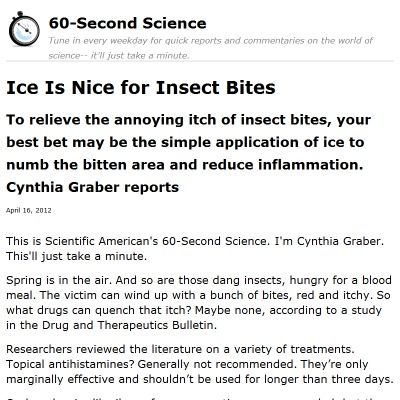
What to Do for Insect Bites: A Comprehensive Guide
Dealing with insect bites can be quite an inconvenience, especially when they cause discomfort or lead to allergic reactions. Whether you’ve been bitten by a mosquito, bee, spider, or any other insect, knowing the right steps to take can help alleviate the pain and prevent complications. In this article, we’ll explore various methods to deal with insect bites, from immediate relief to long-term care.
Immediate Relief for Insect Bites

When you’re bitten by an insect, the first thing you should do is assess the severity of the bite. If it’s a minor bite, you can follow these steps for immediate relief:
-
Wash the bite area with soap and water to prevent infection.
-
Apply a cold compress to reduce swelling and numb the area. You can use a bag of ice wrapped in a cloth or a chilled gel pack.
-
Take an over-the-counter antihistamine to reduce itching and inflammation. Some common options include diphenhydramine (Benadryl) and cetirizine (Zyrtec).
-
Apply a non-prescription hydrocortisone cream to the bite to reduce itching and inflammation. This can be found in most drugstores.
Remember, if you experience severe symptoms such as difficulty breathing, swelling of the throat, or hives, seek medical attention immediately, as these could be signs of a severe allergic reaction.
Preventing Infection

One of the most important aspects of dealing with insect bites is preventing infection. Here are some tips to help you keep the bite area clean and healthy:
-
Keep the bite area clean by washing it with soap and water.
-
Change your clothing if it has come into contact with the bite area.
-
Do not scratch the bite, as this can introduce bacteria and lead to infection.
-
Apply an antibiotic ointment, such as Neosporin, to the bite to prevent infection.
Long-Term Care for Insect Bites

Some insect bites may require long-term care to ensure proper healing. Here are some tips to help you manage the healing process:
-
Keep the bite area clean and dry. Avoid getting it wet if possible.
-
Apply a non-prescription hydrocortisone cream or calamine lotion to reduce itching and inflammation.
-
Protect the bite area from further injury by wearing loose clothing and avoiding tight-fitting garments.
-
Keep an eye on the bite for signs of infection, such as increased redness, swelling, or discharge. If you notice any of these symptoms, seek medical attention.
Home Remedies for Insect Bites
In addition to over-the-counter medications and treatments, there are several home remedies that can help alleviate the symptoms of insect bites:
-
Aloe vera: Apply fresh aloe vera gel to the bite to soothe the skin and reduce inflammation.
-
Baking soda: Mix baking soda with water to create a paste, then apply it to the bite. This can help reduce itching and inflammation.
-
Tea tree oil: Apply a few drops of tea tree oil to the bite to help reduce inflammation and prevent infection.
-
Apple cider vinegar: Soak a cotton ball in apple cider vinegar and apply it to the bite to reduce itching and inflammation.
Preventing Future Insect Bites
Preventing future insect bites is crucial, especially if you’re prone to allergic reactions or if you spend a lot of time outdoors. Here are some tips to help you avoid getting bitten:
-
Wear long-sleeved shirts and pants when you’re in areas where insects are prevalent.
-
Use insect repellent with DEET or picaridin, following the instructions on the label.
-
Keep your home and yard free of standing water, as this can attract mosquitoes.
-





